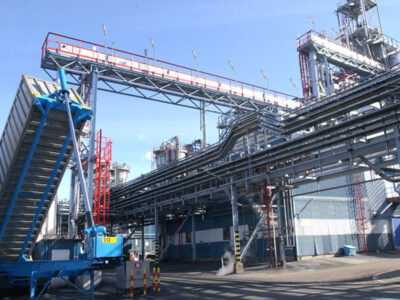Businesses frequently decide between engaging chartered accountants and general accountants when discussing financial management. Although both types of professionals can assist with business accounts, several significant distinctions render one more appropriate for some tasks than the other.
Gain insights into the differences between chartered accountants in Singapore and general accountants, allowing businesses to determine which category of accountant aligns best with their requirements.
The Key Difference: Qualifications and Expertise
The main distinction between a chartered accountant and a general accountant lies in their qualifications and level of expertise. Chartered accountants are members of recognised professional accounting bodies, such as the Institute of Singapore Chartered Accountants (ISCA). They have completed rigorous exams, possess extensive experience, and follow strict ethical guidelines. This designation ensures they can provide a high level of expertise and accountability.
In contrast, general accountants may not have formal certifications and generally handle routine accounting tasks. They can work in various roles within finance teams. However, they lack the extensive credentials that chartered accountants hold. General accountants from small accounting firms can manage day-to-day accounting tasks efficiently for smaller companies. However, a chartered accountant can provide the advanced insight needed for businesses requiring complex financial strategies.
Core Functions: What Each Accountant Can Offer
Financial Reporting and Compliance
- Chartered Accountants: Chartered accountants bring comprehensive knowledge of financial regulations and compliance. They stay updated on the latest regulations, making them ideal for businesses that need accurate financial statements for stakeholders or regulatory bodies. Chartered accountants offer assurance that financial records meet all compliance standards.
- General Accountants: General accountants, particularly those working in small accounting firms, focus on maintaining accurate records and handling day-to-day transactions. They ensure that books are balanced. However, they may lack the specialised knowledge for complex reporting and regulatory requirements.
Strategic Financial Planning
- Chartered Accountants: Chartered accountants offer insights into business performance and provide long-term financial strategies. They can conduct in-depth analyses, create forecasts, and advise on optimal investments or restructuring. A chartered accountant can provide the strategic vision required for businesses planning expansion or diversification.
- General Accountants: General accountants primarily focus on recording and categorising daily transactions. While they can assist with budgeting and simple planning, they may not be experts in complex financial forecasting or strategy.
Tax Advisory and Optimisation
- Chartered Accountants: Chartered accountants are well-versed in the city-state’s tax laws and can offer tax advice and strategies tailored to the specific needs of a business. These accountants can help optimise tax positions, reduce liabilities, and ensure compliance with the Inland Revenue Authority of Singapore (IRAS) guidelines.
- General Accountants: Although general accountants can handle basic tax filing and submissions, they may lack the comprehensive tax planning expertise that chartered accountants provide. A chartered accountant is typically the more qualified choice for businesses seeking to maximise tax efficiency.
Cost Implications: Chartered Accountants vs. General Accountants
One practical consideration is the cost associated with each type of accountant. Chartered accountants command higher fees due to their extensive qualifications and expertise. This investment often proves valuable for larger businesses or those with complex financial requirements. On the other hand, small accounting firms in Singapore typically offer more affordable services through general accountants, making them an attractive choice for small businesses that require basic bookkeeping and compliance without high-level advisory services.
Deciding Factors for Singapore Businesses
Choosing between a chartered accountant and a general accountant depends largely on the size and needs of the business:
- Small Businesses or Start-ups: General accountants or small accounting firms can be cost-effective and efficient for companies with straightforward accounting needs. They handle essential tasks such as invoicing, payroll, and daily record-keeping, helping the business maintain financial order without extensive costs.
- Growing or Complex Businesses: As a business expands, the complexity of its financial needs often grows. Hiring a chartered accountant for these companies offers a broader skill set, from advanced tax optimisation to strategic financial planning. Their knowledge and credentials can help the company scale effectively while ensuring regulatory compliance.
Conclusion
Deciding to engage chartered accountants versus general accountants is primarily determined by the unique requirements of a business. Larger enterprises and those encountering intricate financial situations may find that a chartered accountant in Singapore offers the necessary expertise and assurance to fulfil strategic and regulatory obligations. Conversely, smaller businesses with simpler bookkeeping demands might find that general accountants or smaller accounting firms provide a more cost-effective and efficient solution. Businesses can successfully oversee their financial management and facilitate their growth by choosing the appropriate professional.
Contact Credo Assurance to take your business finances to the next level.








Comments